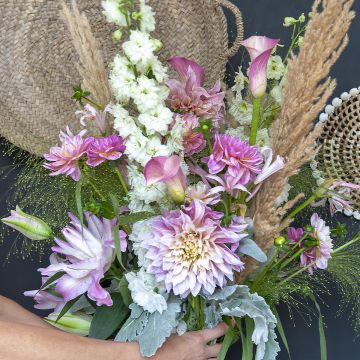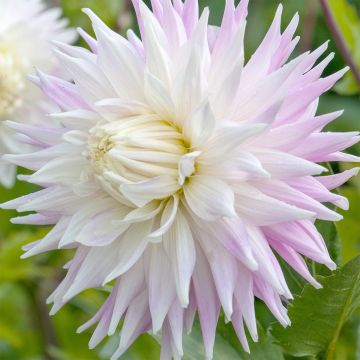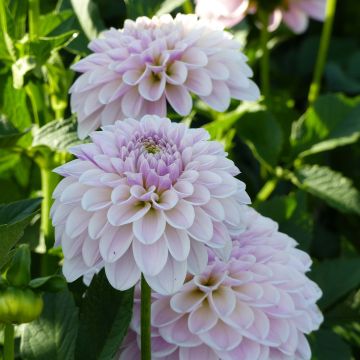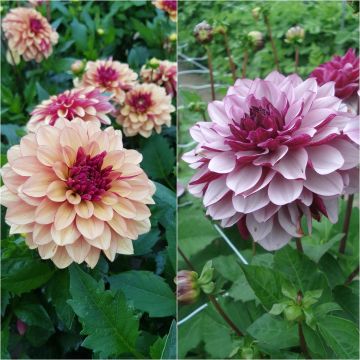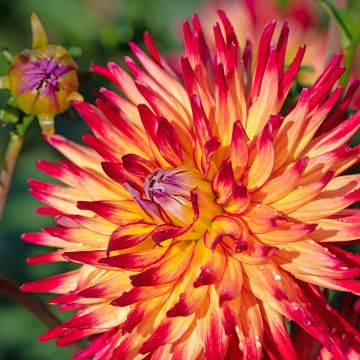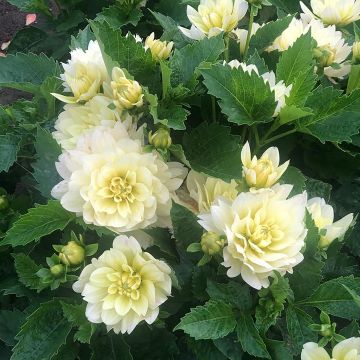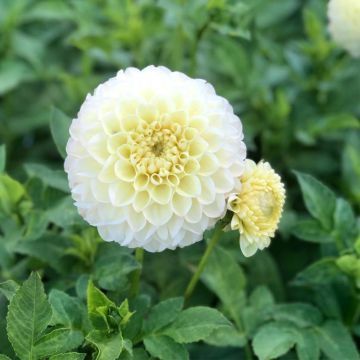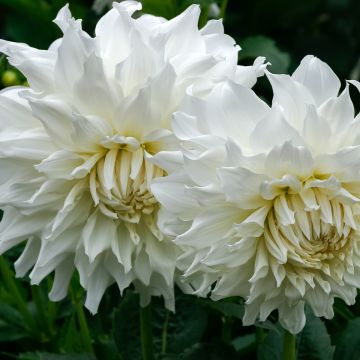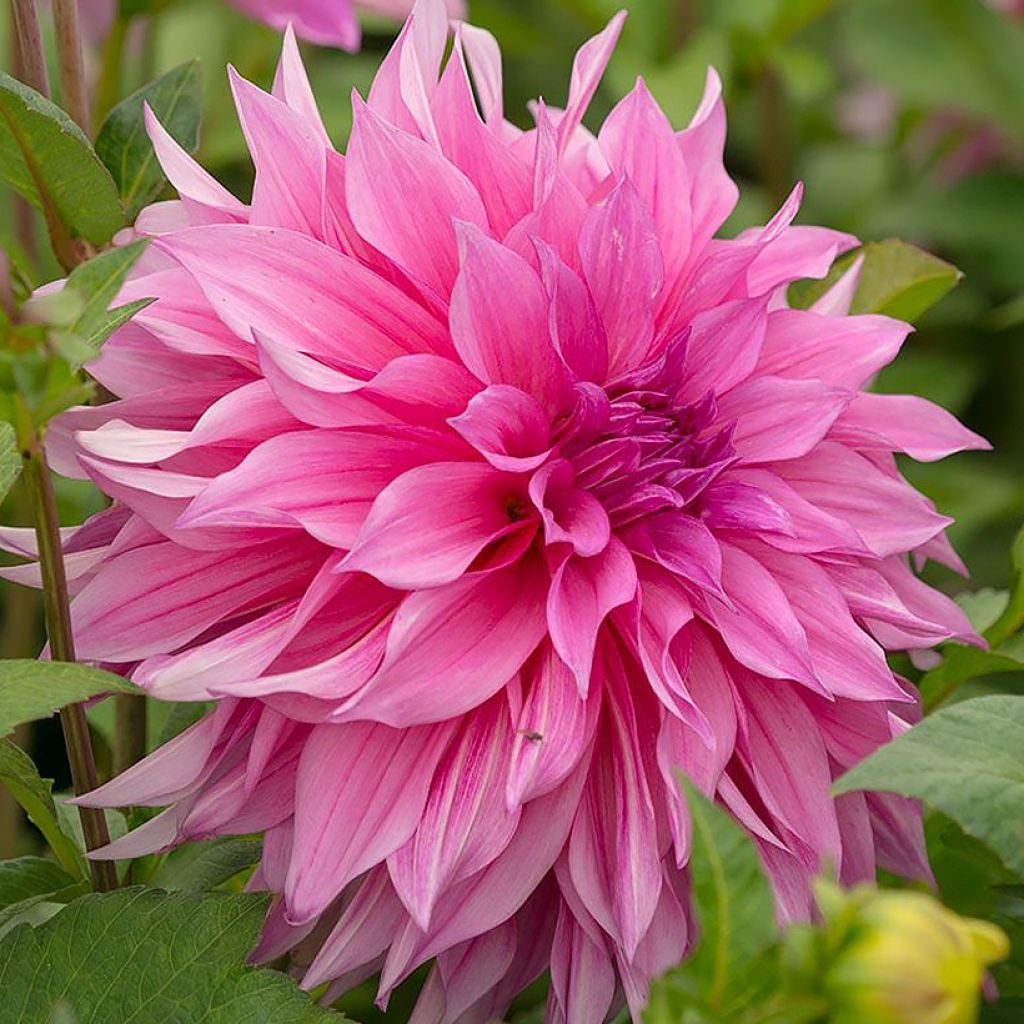

Dahlia Café au Lait Rosé
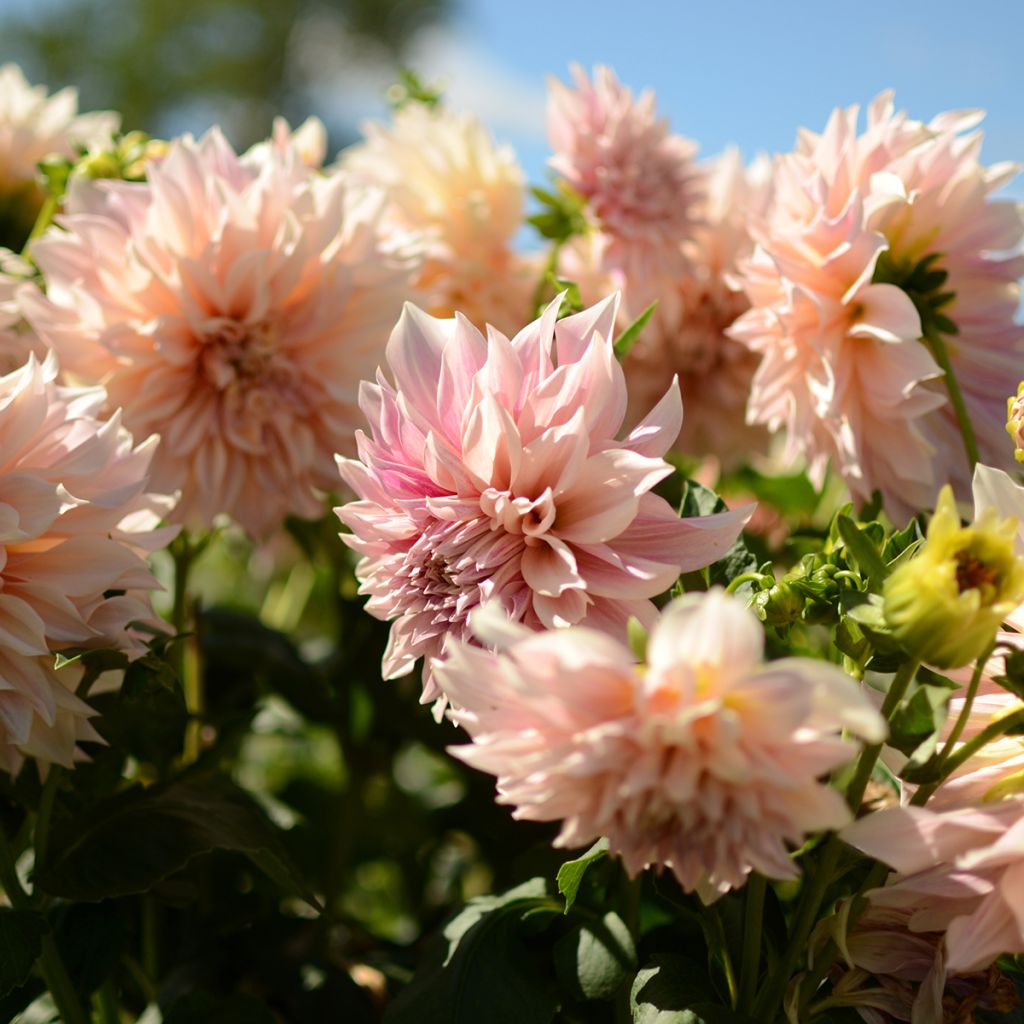

Dahlia Café au Lait Rosé
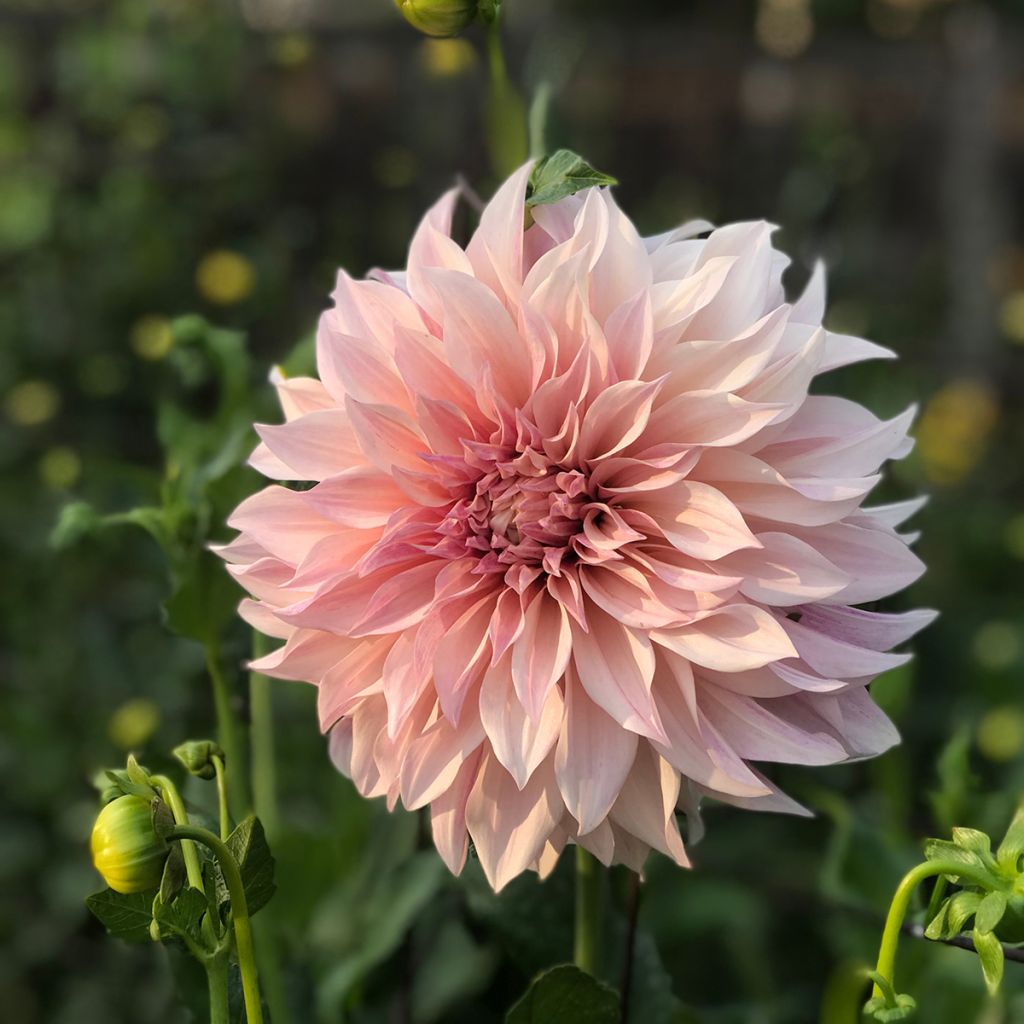

Dahlia Café au Lait Rosé
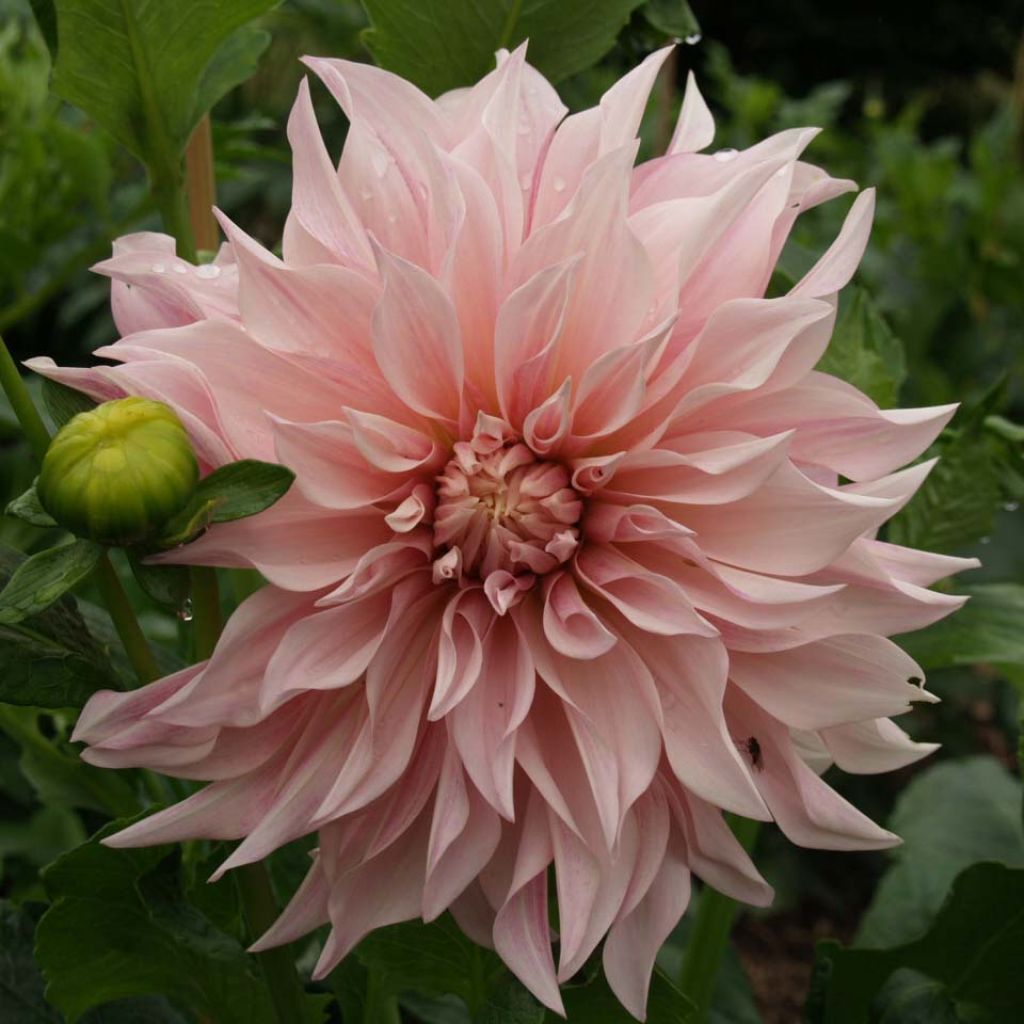

Dahlia Café au Lait Rosé
View more pictures
Hide images
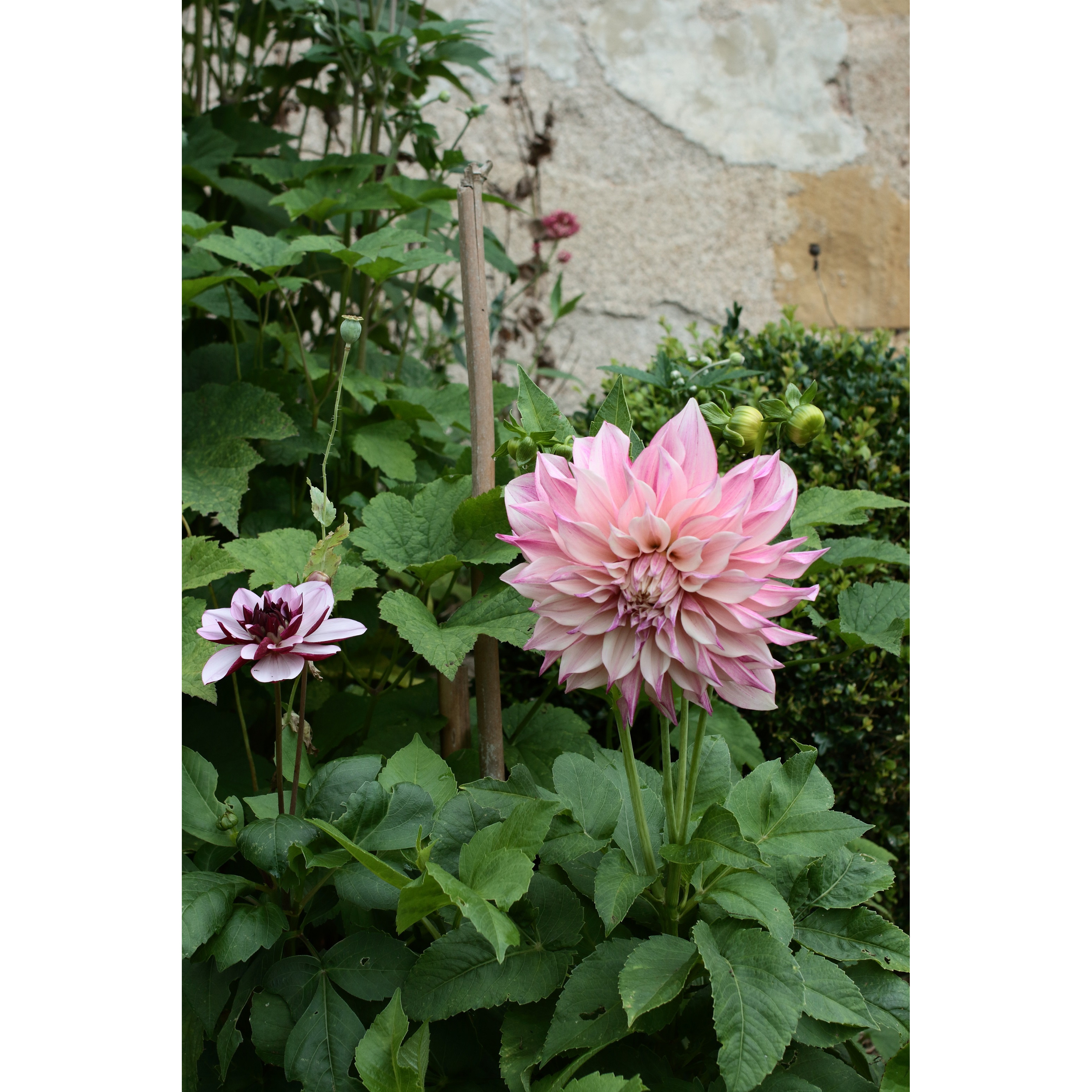
Stéphane R.

Beautiful giant café au lait pink dahlia in front of the boxwoods.
Stéphane R. • 86 FR
Dahlia Café au Lait Rosé
Dahlia Café Au Lait rosé
Giant Dahlia
Unfortunately, I had two major slug attacks. The plant recovered each time, but as a result, the flowering didn't happen this year. I'll protect it better next year to get a beautiful flowering.
Charlie , 21/09/2025
Special offer!
Receive a €20 voucher for any order over €90 (excluding delivery costs, credit notes, and plastic-free options)!
1- Add your favorite plants to your cart.
2- Once you have reached €90, confirm your order (you can even choose the delivery date!).
3- As soon as your order is shipped, you will receive an email containing your voucher code, valid for 3 months (90 days).
Your voucher is unique and can only be used once, for any order with a minimum value of €20, excluding delivery costs.
Can be combined with other current offers, non-divisible and non-refundable.
Home or relay delivery (depending on size and destination)
Schedule delivery date,
and select date in basket
This plant carries a 6 months recovery warranty
More information
We guarantee the quality of our plants for a full growing cycle, and will replace at our expense any plant that fails to recover under normal climatic and planting conditions.
Would this plant suit my garden?
Set up your Plantfit profile →
Description
Dahlia 'Café au Lait Rosé' is almost impossible to find in horticultural commerce. Like the famous giant Dahlia 'Café au Lait', this brand-new variety has huge double flowers, sometimes reaching 25cm (10in) in diameter. They emerge from violet buds that open in a soft colour between cream and pale-pink. This dahlia blooms quite late, from summer to autumn, on stems that can reach 1.2m (4ft) in height. Combine it in your flower beds with light flowers, grasses, or foliage plants. Its spectacular flowers make sumptuous bouquets.
Dahlias belong to the Asteraceae family and are originally from the high plateaus of Mexico. Currently, there are thousands of horticultural varieties that have conquered gardens worldwide. The 'Café au Lait Rosé' variety is part of the giant dahlias group. Its stems can reach 1.1m to 1.2m (4ft) high and 60cm (24in) wide. It is also classified as a decorative dahlia, which is a horticultural category defined by the shape of the flower. In this group, the coloured ligules of the head are arranged regularly in a spiral, and can be bent towards the stem or curled, for example. The flowering of this variety begins in July and ends in October. The flower heads measure 22 to 25cm (9 to 10in) in diameter. The outermost ligules are quite large and slightly turbinate, while those in the centre are more coiled. Their pale-pink colour is quite homogeneous, slightly darker at the heart of the inflorescence. The habit is bushy and erect, and the branched stems are hollow. Its leaves are opposite and pinnate, meaning they are divided into 3 or 5 toothed lobes. The leaves and stems are bright, fairly light green.
To extend the flowering period and promote new blooms, take care to remove faded flowers. Even better, cut them regularly to create attractive colourful bouquets by combining several varieties.
'Café au Lait Rosé' pairs particularly well with pink, white, mauve, and red blooms, especially those of roses. In flower beds, it will perfectly match echinaceas, white lilies, cornflowers, and cosmos, for example. It will also make a pretty and unique mix with sedums and miscanthus.
As a star plant in borders and kitchen gardens, dahlias confidently accompany the most beautiful flowers but are also appreciated alongside vegetable plants. In Mexico, this tuberous plant was initially cultivated as a root vegetable for consumption. However, its poor taste qualities assigned it the status of an ornamental plant. Since then, the interest in their beautiful exuberance has never waned.
Report an error about the product description
Dahlia Café au Lait Rosé in pictures
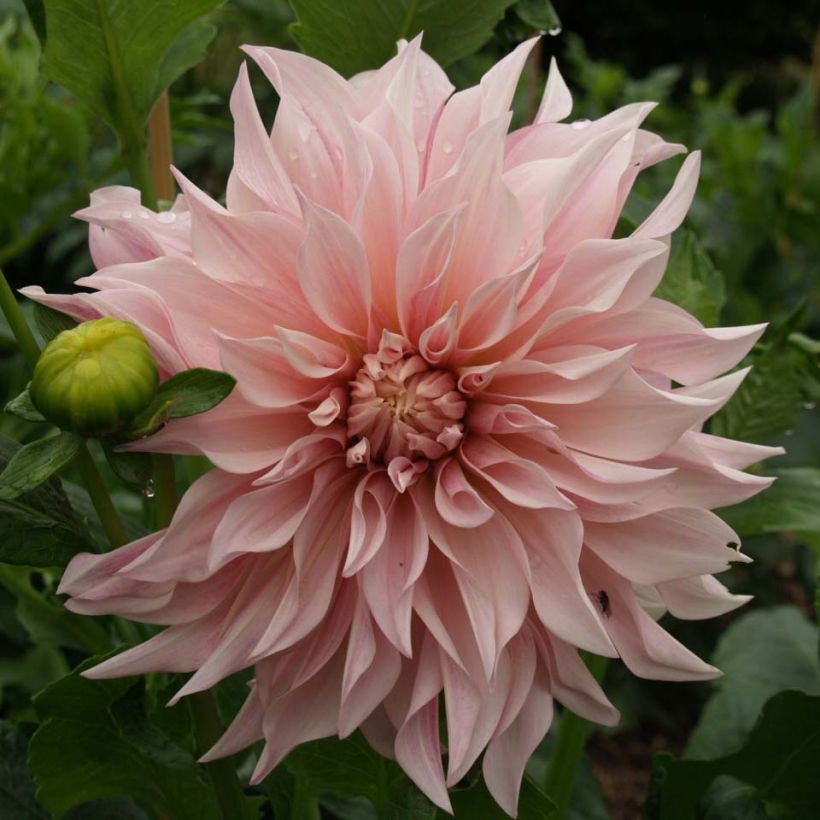

Plant habit
Flowering
Foliage
Botanical data
Dahlia
Café Au Lait rosé
Asteraceae
Giant Dahlia
Cultivar or hybrid
Planting and care
Plant your dahlias in the springtime in deeply worked and enriched soil, for example with crushed horn or dehydrated blood. Place your tuber and crumble the soil well to fill in without any air pockets. Your dahlia should be covered with 6cm (2in) of soil. At the end of planting, provide it with one litre of water. Water regularly during the first 6 weeks to help with rooting.
Dahlias are sensitive to cold, so they need to be overwintered. In November, the first frosts will blacken the foliage, which is the time to dig them up. Carefully unearth the tubers. Remove as much soil as possible. Let the foliage dry so that the tuber can replenish its reserves. When the foliage is dry, cut the stems to 10cm (4in) from the tuber. Spread your bulbs in a box on newspaper. Store in a frost-free, dry, cool, and dark place.
Planting period
Intended location
Care
-
, onOrder confirmed
Reply from on Promesse de fleurs
Similar products
Haven't found what you were looking for?
Hardiness is the lowest winter temperature a plant can endure without suffering serious damage or even dying. However, hardiness is affected by location (a sheltered area, such as a patio), protection (winter cover) and soil type (hardiness is improved by well-drained soil).

Photo Sharing Terms & Conditions
In order to encourage gardeners to interact and share their experiences, Promesse de fleurs offers various media enabling content to be uploaded onto its Site - in particular via the ‘Photo sharing’ module.
The User agrees to refrain from:
- Posting any content that is illegal, prejudicial, insulting, racist, inciteful to hatred, revisionist, contrary to public decency, that infringes on privacy or on the privacy rights of third parties, in particular the publicity rights of persons and goods, intellectual property rights, or the right to privacy.
- Submitting content on behalf of a third party;
- Impersonate the identity of a third party and/or publish any personal information about a third party;
In general, the User undertakes to refrain from any unethical behaviour.
All Content (in particular text, comments, files, images, photos, videos, creative works, etc.), which may be subject to property or intellectual property rights, image or other private rights, shall remain the property of the User, subject to the limited rights granted by the terms of the licence granted by Promesse de fleurs as stated below. Users are at liberty to publish or not to publish such Content on the Site, notably via the ‘Photo Sharing’ facility, and accept that this Content shall be made public and freely accessible, notably on the Internet.
Users further acknowledge, undertake to have ,and guarantee that they hold all necessary rights and permissions to publish such material on the Site, in particular with regard to the legislation in force pertaining to any privacy, property, intellectual property, image, or contractual rights, or rights of any other nature. By publishing such Content on the Site, Users acknowledge accepting full liability as publishers of the Content within the meaning of the law, and grant Promesse de fleurs, free of charge, an inclusive, worldwide licence for the said Content for the entire duration of its publication, including all reproduction, representation, up/downloading, displaying, performing, transmission, and storage rights.
Users also grant permission for their name to be linked to the Content and accept that this link may not always be made available.
By engaging in posting material, Users consent to their Content becoming automatically accessible on the Internet, in particular on other sites and/or blogs and/or web pages of the Promesse de fleurs site, including in particular social pages and the Promesse de fleurs catalogue.
Users may secure the removal of entrusted content free of charge by issuing a simple request via our contact form.
The flowering period indicated on our website applies to countries and regions located in USDA zone 8 (France, the United Kingdom, Ireland, the Netherlands, etc.)
It will vary according to where you live:
- In zones 9 to 10 (Italy, Spain, Greece, etc.), flowering will occur about 2 to 4 weeks earlier.
- In zones 6 to 7 (Germany, Poland, Slovenia, and lower mountainous regions), flowering will be delayed by 2 to 3 weeks.
- In zone 5 (Central Europe, Scandinavia), blooming will be delayed by 3 to 5 weeks.
In temperate climates, pruning of spring-flowering shrubs (forsythia, spireas, etc.) should be done just after flowering.
Pruning of summer-flowering shrubs (Indian Lilac, Perovskia, etc.) can be done in winter or spring.
In cold regions as well as with frost-sensitive plants, avoid pruning too early when severe frosts may still occur.
The planting period indicated on our website applies to countries and regions located in USDA zone 8 (France, United Kingdom, Ireland, Netherlands).
It will vary according to where you live:
- In Mediterranean zones (Marseille, Madrid, Milan, etc.), autumn and winter are the best planting periods.
- In continental zones (Strasbourg, Munich, Vienna, etc.), delay planting by 2 to 3 weeks in spring and bring it forward by 2 to 4 weeks in autumn.
- In mountainous regions (the Alps, Pyrenees, Carpathians, etc.), it is best to plant in late spring (May-June) or late summer (August-September).
The harvesting period indicated on our website applies to countries and regions in USDA zone 8 (France, England, Ireland, the Netherlands).
In colder areas (Scandinavia, Poland, Austria...) fruit and vegetable harvests are likely to be delayed by 3-4 weeks.
In warmer areas (Italy, Spain, Greece, etc.), harvesting will probably take place earlier, depending on weather conditions.
The sowing periods indicated on our website apply to countries and regions within USDA Zone 8 (France, UK, Ireland, Netherlands).
In colder areas (Scandinavia, Poland, Austria...), delay any outdoor sowing by 3-4 weeks, or sow under glass.
In warmer climes (Italy, Spain, Greece, etc.), bring outdoor sowing forward by a few weeks.































